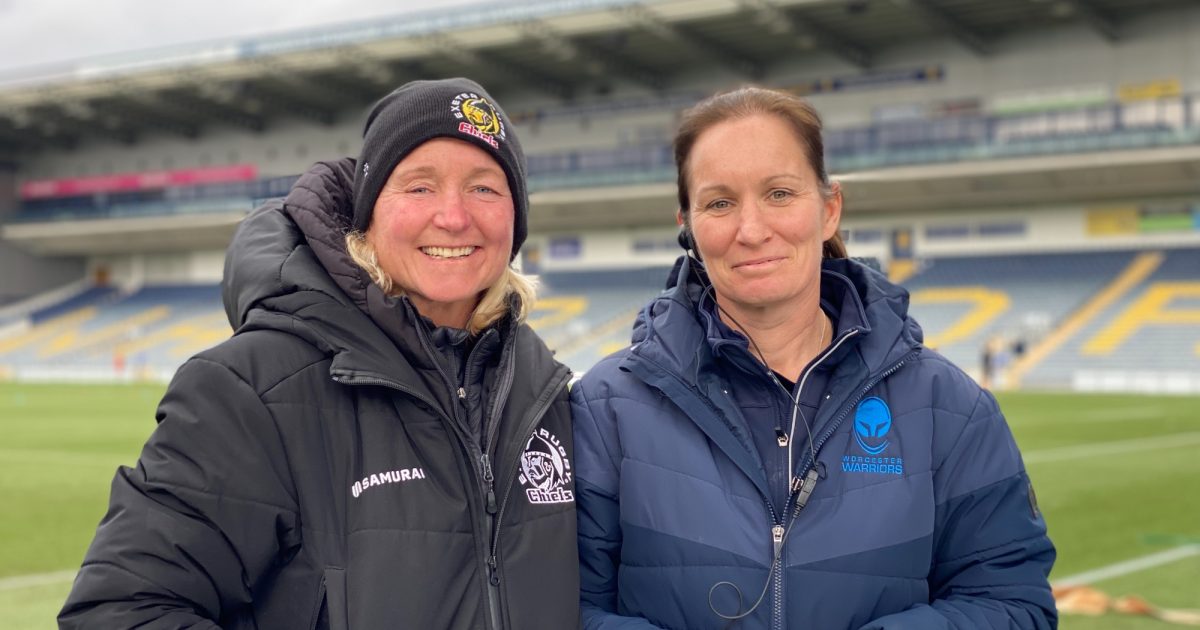'Rugby is miles behind in recognising barriers that stop women progressing in top coaching roles'

As Simon Middleton prepares to leave his role as England head coach, there are increasing calls for his successor to be a woman.
At the weekend, Sunday Times writer, Stephen Jones, who has a long pedigree reporting on the women’s game, suggested that current Ealing Trailfinders Women’s Director of Rugby Giselle Mather should be the front runner, while the Telegraph among others have produced lists of suitably qualified women who could fill what I consider to be the best job in women’s rugby.
Backed by a union which has invested harder and faster than anyone else in its women’s programme; supported by the development of players in the world’s leading club league and boosted by the fact that England will host the World Cup in 2025 and all of the profile that will bring – this is surely a job that will be widely coveted.
England hiring a woman for the job would certainly be historic and a sign of how far the game has come.
When Middleton was given the role in 2015, arguably there was no female candidate (or at least few) in England with the required level of experience for the job – now there are several.
But despite all this, rugby is still miles behind sports like football in recognising the barriers that have stopped more women progressing in top coaching roles and taking active steps to remove them.
World Rugby’s female coach internship programme has accelerated the development of several women now climbing the ranks, like Harlequins’ Amy Turner, New Zealand’s Whitney Hansen and the Scottish Thistles’ Claire Cruikshank, but this work is still in its early stages and there are still scant opportunities for women to take on top international coaching roles.
When the debate plays out on social media about these jobs, and when people suggest, rightly of course, that they should simply go to the best candidates available, the underlying suggestion is that these are men and that there is more value to be placed on the experience that these men bring from coaching in the men’s game.
This point ignores of course the fact that women for so long have simply not been given the opportunity to become the ‘best candidates available’.
Take for example the fact that men have for eons had a dual pathway into coaching – that is, there are ample opportunities for them to coach men and women.
Women, on the other hand, rarely get the opportunity to coach men, which is why it is such a big story when it happens.
With more value placed on coaching in men’s rugby, you can see one immediate blocker to the progress of female coaches.
Another argument often made as to why so few women coach in men’s sport is because they cannot possibly understand a game they haven’t themselves played or experienced. If this was true, then women would be dominating the coaching of women’s sports – yet they are not.
Carol Isherwood, who is doing so much good work in this area, speaks smartly about the work going on to equalise opportunities so that there is a cohort of women experienced and confident enough not just to apply for top roles, but to have a fair shot at getting them.
Middleton himself recently called for there to be women involved in some capacity in the national team setup when he is gone, and this for me is where the real debate should be happening.
In international rugby there is still a shocking absence of women within coaching teams in any role.
It cannot be right that at the last World Cup in New Zealand there were just three women in permanent coaching roles – Whitney Hansen (New Zealand), Leslie Mckenzie (Japan) and Gaelle Mignot (France).
This lack of gender diversity within coaching teams is a problem for several reasons, but two in particular for me.
The first one is obvious. It’s become increasingly accepted that more diverse workforces make for more successful outcomes in business. Sport should be no different.
There are brilliant men coaching in rugby, but it is arrogant to assume that coaching teams wouldn’t benefit from the voices and experience of people with different backgrounds, and from styles and skills which were honed on different pathways.
Gender diversity is not the only challenge to tackle here by the way, especially when you consider the vast majority of coaching appointments at the top of women’s rugby go to white men.
The second issue relates to the huge talent and experience the women’s game is haemorrhaging when our top players retire.
That so few leading international players have gone into coaching should be cause for alarm. There are myriad reasons for this, but one absolutely is the lack of precedent and lack of blueprint for how it should be done.
This doesn’t happen in men’s rugby, where players often retire one day, and move into top coaching roles the next.
So no, England don’t have to hire a woman to be their next head coach, but they, and everyone else in the market for new coaches in the game should commit to hiring a balanced and diverse coaching team, where women’s voices are not just an add on to the package, but a vital and permanent fixture.

































